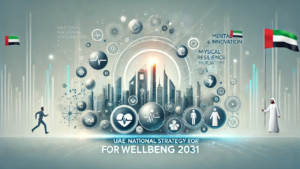Authored by: Humza Rana
Dubai boasts one of the most sophisticated healthcare systems in the region, featuring exceptional infrastructure, highly skilled professionals, and state-of-the-art technology. The city is dedicated to delivering patient care through a network of prestigious hospitals and medical facilities, which includes both public and private entities. The Dubai Health Authority (DHA) governs the entire industry and is responsible for licensing, accreditation, policy-making, and reform within the sector. It also ensures quality control for healthcare institutions, medical professionals, and insurance companies.
Dental care
A plethora of specialized dental clinics and private practices exist, such as the NOA Dental Clinic and Dr Joy Dental Clinic. Numerous hospitals throughout Dubai also offer extensive dental services. While various dental treatments – especially aesthetic procedures – often lack coverage in many basic insurance plans, a few providers present packages that include dental benefits, like Cigna.
Maternity leave
Women in the city enjoy extensive maternity leave and benefits. Female workers are eligible for 60 days of maternity leave, with 45 days being fully compensated, and 15 days receiving partial pay. An additional 45 days of unpaid leave may be granted if a mother is unable to return to work immediately due to health issues. Furthermore, an extra 30 days of paid leave is available if the child suffers from illness or has a disability.
Health initiatives for community members
Dubai organizes multiple health-related initiatives and campaigns annually, focused on enhancing the lifestyle, wellbeing, and health of its inhabitants.
These efforts encompass seasonal programs for diabetes care and prevention,
anti-smoking initiatives, awareness for cancer screenings, complimentary breast cancer check-ups, blood donation events, free health assessments, and more.
In addition to these initiatives, Dubai also promotes mental health awareness through workshops, seminars, and counseling services. The city has invested in numerous fitness programs, outdoor wellness activities, and recreational events to encourage its residents to adopt healthy and active lifestyles.
Special focus is placed on maternal and child health, with educational resources for new parents and outreach programs supporting children’s health.
Dubai’s healthcare system also actively collaborates with global health organizations, working to address public health challenges and improve healthcare access for all age groups and demographics.
With a commitment to maintaining a high standard of living and health, Dubai’s community health initiatives continue to make strides towards building a healthier and happier population.
Health and vitality
Dubai provides an extensive array of fitness and wellness opportunities,
featuring gyms, tailored training plans, globally acclaimed spas, and advanced skin treatments. Moreover, the city boasts various alternative medicine and holistic health centers, offering everything from traditional Chinese healing to Ayurveda and herbal remedies. There’s an abundance of physiotherapy clinics, rehabilitation centers, and nutrition specialists, along with nutritious restaurants that promote a healthier lifestyle.
Community in focus
Residing in Dubai means participating in numerous wellness programs and events,
such as races, running sessions, and sports championships. Notable citywide contests
and happenings include the Dubai Fitness Challenge, Dubai Run, Dubai Ride,
and the One Run-International Half Marathon. Weekly complimentary activities,
encompassing yoga, hiking, camping, and more, are available at various venues,
allowing both locals and visitors to enhance their health and wellbeing.
Difficulties
The United Arab Emirates (UAE) is an evolving nation that has achieved remarkable advancements in healthcare in recent years. Nevertheless, several hurdles remain as the country seeks to enhance the health and wellness of its populace. This case study will delve into the top 10 distinctive obstacles encountered by the UAE regarding this matter.
- Elevated obesity levels:
According to the World Population Review, the UAE holds the fifth-highest obesity rate globally, with over 30% of its inhabitants being classified as obese. - High incidence of diabetes:
With more than 19% of the population dealing with the illness, the UAE ranks second in global diabetes prevalence. - Insufficient physical activity:
A lack of movement poses a significant challenge to promoting good health and wellness in the UAE, where many individuals spend considerable time indoors and fail to partake in regular exercise.

Environmental pollution: Pollution in the air is an increasing concern in the UAE, particularly in metropolitan areas such as Dubai and Abu Dhabi. Prolonged exposure to inadequate air quality can result in numerous health issues, including respiratory ailments and heart disease.
Mental health challenges: Mental health is becoming an increasingly pressing issue in the UAE, with depression and anxiety being some of the most prevalent conditions. The stigma surrounding mental health and insufficient awareness complicate these issues further.
Limited healthcare availability: Despite remarkable advancements in recent years, disparities in healthcare access persist in the UAE, notably in more remote areas.
High tobacco consumption rates: The World Health Organization indicates that over 25% of the UAE’s population engages in tobacco use, which can lead to various health complications, including cancer and heart disease.
Restricted access to nutritious food:
Although progress has been made in advocating for healthy eating in the UAE, many regions still have limited access to healthy food options.
Subpar sleep quality:
Sleep is crucial for good health and wellbeing, yet numerous individuals in the UAE report insufficient sleep due to several factors, such as work commitments and lifestyle decisions.
Water shortages:
The UAE ranks as one of the driest nations globally, and water scarcity poses a significant barrier to promoting good health and wellness. Access to safe drinking water is vital for sustaining health. Although the UAE has achieved notable advancements in fostering good health and wellness among its population, various challenges still need to be tackled. Obesity, diabetes, a lack of physical activity, air pollution, mental health challenges, limited healthcare access, tobacco use, poor sleep quality, and water shortages all demand attention. Overcoming these challenges necessitates cooperation and innovation from stakeholders throughout the country, including government entities, healthcare providers, businesses, and individuals. By uniting efforts, the UAE can continue to enhance the health and wellbeing of its citizens and pave the way for healthcare innovation.
Initiatives Undertaken by the Nation: The United Arab Emirates (UAE) has made remarkable advancements in enhancing the health and welfare of its populace in recent years. The administration has enacted various strategies to ensure access to high-quality medical care and elevate the general health of the community. Below are ten distinctive and exceptional initiatives undertaken for optimal health and welfare by the nation:
Comprehensive Health Insurance: The UAE administration introduced a National Health Insurance Scheme (NHIS) to ensure comprehensive health coverage for its citizens and inhabitants. The NHIS encompasses all crucial healthcare provisions, including preventive, therapeutic, and rehabilitative services.
Virtual Healthcare: Virtual healthcare has been adopted nationwide to facilitate remote access to medical services. Patients can obtain consultations, assessments, and therapies online, minimizing the necessity for physical visits and enhancing care availability, particularly in rural regions.
Health Screening Initiatives: The UAE administration initiated several health screening initiatives for conditions such as diabetes, cancer, and cardiovascular diseases. These initiatives enable early identification and treatment, enhancing health outcomes while lowering healthcare expenditures.
Health Awareness Campaigns: The UAE administration has rolled out numerous health awareness campaigns, aimed at promoting nutritious eating habits, exercise, and quitting smoking. These campaigns are designed to prevent chronic illnesses and elevate overall health and welfare.
Mental Wellness Services: The UAE has established various programs to enhance mental wellness services. The government initiated the National Program for Happiness and Wellbeing to advocate for positive mental health, while several private and public healthcare facilities have set up mental health units.
Health Literacy Programs: The UAE has introduced a variety of health literacy programs aimed at raising awareness about healthy lifestyles and preventive care. These initiatives seek to diminish the prevalence of chronic diseases and ameliorate health results.
Public-Private Collaborations: The UAE has established several public-private collaborations in the healthcare sector to boost access to quality healthcare services. Involvement from the private sector has led to heightened investments in healthcare facilities and technologies, leading to improved care quality.
Digital Health Records: The UAE administration launched the Digital Health Record (DHR) system to enhance patient care and safety. The DHR system enables healthcare providers to securely and efficiently access patient data, contributing to better diagnoses, treatments, and health outcomes.
Health Tourism: The UAE has positioned itself as a premier destination for health tourism, drawing patients globally seeking specialized medical interventions. The surge in health tourism has resulted in increased investments in healthcare facilities and technologies, enhancing local residents’ access to care.
Healthcare Research:
The UAE administration has made substantial investments in healthcare research to enhance health outcomes and cultivate innovative healthcare solutions. The nation is home to numerous top-tier research institutions and is dedicated to advancing healthcare research. These exceptional initiatives have markedly contributed to enhancing the health and welfare of the population in the UAE. However, challenges remain that must be addressed to ensure sustained progress towards achieving optimal health and welfare for everyone.
Sources
